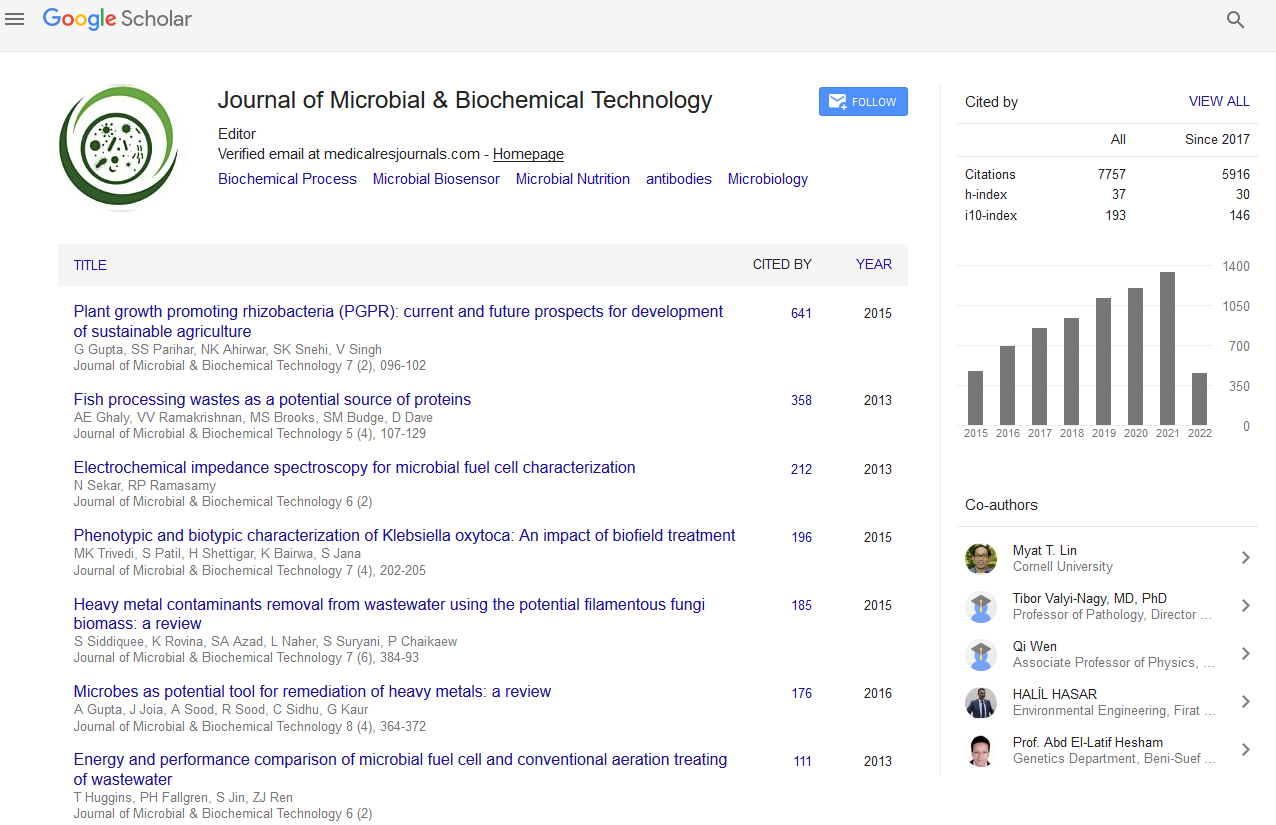PMC/PubMed Indexed Articles
Indexed In
- Academic Journals Database
- Genamics JournalSeek
- Academic Keys
- JournalTOCs
- China National Knowledge Infrastructure (CNKI)
- Scimago
- Access to Global Online Research in Agriculture (AGORA)
- Electronic Journals Library
- RefSeek
- Directory of Research Journal Indexing (DRJI)
- Hamdard University
- EBSCO A-Z
- OCLC- WorldCat
- SWB online catalog
- Virtual Library of Biology (vifabio)
- Publons
- MIAR
- University Grants Commission
- Geneva Foundation for Medical Education and Research
- Euro Pub
- Google Scholar
Useful Links
Share This Page
Journal Flyer

Open Access Journals
- Agri and Aquaculture
- Biochemistry
- Bioinformatics & Systems Biology
- Business & Management
- Chemistry
- Clinical Sciences
- Engineering
- Food & Nutrition
- General Science
- Genetics & Molecular Biology
- Immunology & Microbiology
- Medical Sciences
- Neuroscience & Psychology
- Nursing & Health Care
- Pharmaceutical Sciences
Molecular diagnostic and correlates of HIV/AIDS patients attending an HIV/AIDS Healthcare Center of the Northwest Mexico-USA border
3rd World Congress and Expo on Applied Microbiology
November 07-09, 2016 Dubai, UAE
Salas-Vargas David Sergio, Vargas-Ojeda A C, Velasco Aulci Lynette Amparo and Meza Arturo
Universidad Autónoma de Baja California, Mexico
Posters & Accepted Abstracts: J Microb Biochem Technol
Abstract:
Background: Tijuana is the largest urban metropolis in Northwestern Mexico and home to many people who has migrated from within Mexico and from the United States jails, which arrived to Tijuana and remain in unfavorable socioeconomic conditions. HIV/ AIDS prevalence continues to be a public health problem in Mexico. Knowing the advantages of a more specific treatment to HIV/ AIDS patients by identifying the subtype of HIV-1, we explored the correlates of HIV/AIDS patients living in Tijuana and identify if the molecular test for sub-typing HIV-1 is done prior initiating an HIV/AIDS treatment. Material & Methods: This is a descriptive, cross-sectional study in a non-randomized sample of 46 HIV/AIDS patients. A structured survey was applied to each patient to analyze their risk conducts and to determine if health centers provide the molecular test to subtype the HIV-1. Results: 46 patients infected with HIV-1 were included in the study, mean age 35 years. The majority (74%) was man, 15% were homosexuals and 4% bisexuals. 50% were single and 40% had been in jail; 30% had Tuberculosis associated; 34% had received previously a blood transfusion; 15% where still consuming intravenously drugs and 20% responded they use the same syringe several times. 20 health professionals perceived the need for the molecular sub-typing of the HIV-1 but there is not a laboratory at the main health centers in Tijuana that can do the test. Conclusions: In order to give a more specific treatment to HIV/AIDS patients and avoid the possible resistance to anti-retrovirals, it is necessary to perform molecular sub-typing of HIV-1 to treat more effectively our HIV/AIDS patients.
Biography :
Salas-Vargas David Sergio has completed his PhD from Autonomous University of Baja California (UABC), Mexico. He was the Dean of the School of Health Sciences for almost eight years. He is currently the Coordinator of Postgraduate and Research Studies at the School of Health Sciences at UABC and Lecture of Epidemiology to undergraduate and postgraduate students.
Email: salasd@uabc.edu.mx


